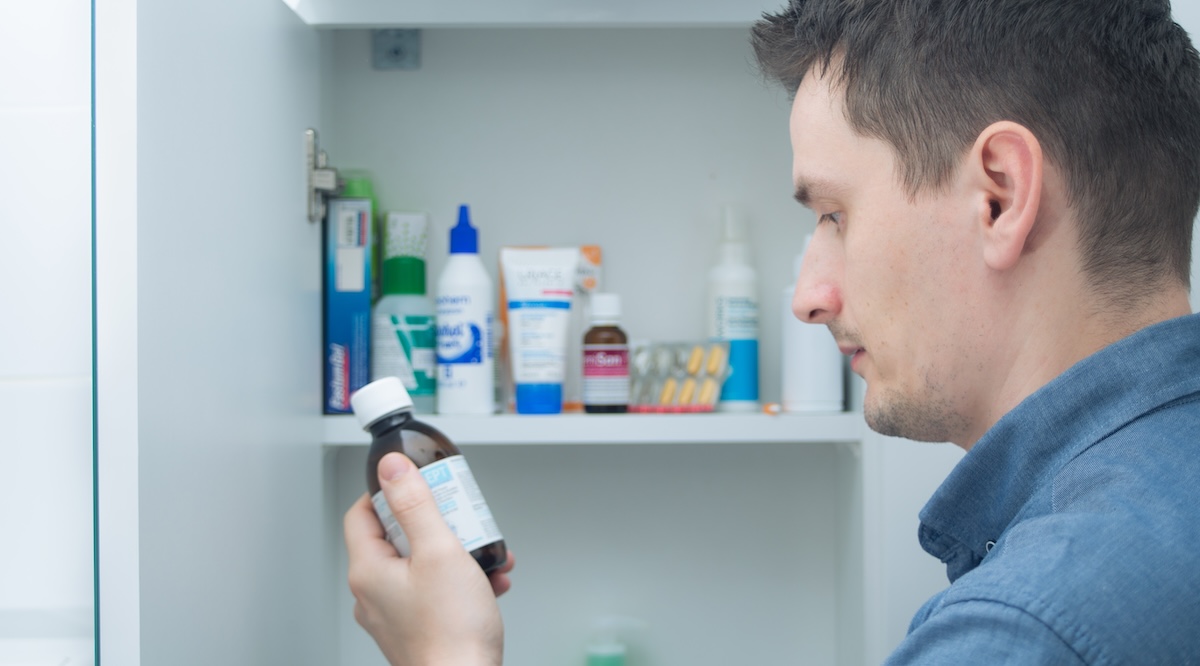
Opening your medicine cabinet to find you’re missing crucial supplies during an illness or injury can leave you feeling helpless. Having the right items on hand can mean the difference between managing minor health issues at home and making an unnecessary trip to urgent care.
Internal medicine specialist Dr. Badalyan helps patients navigate health challenges every day at Tryon Medical Partners. She shares her expert advice on the first aid kit must-haves that prepares you for common household medical needs.
Cold and virus essentials
When it comes to fighting the common cold, less is often more, according to Dr. Badalyan. “At the pharmacy, there are a million different products to choose from, but remember – there’s no cure for a cold. You’ll feel better with time and the right supportive care.”
She recommends keeping these basics on hand in your household first aid kit:
- Tylenol and ibuprofen for general discomfort
- A reliable thermometer
- A nasal decongestant (use no more than 3 times daily for a maximum of three days)
- Basic cough medicine for nighttime relief
- An antihistamine
- Saline nasal spray and sinus rinse
- COVID-19 and flu tests for quick diagnosis
Stomach upset solutions
Digestive issues can strike suddenly, making preparation essential. “For diarrhea, one tablet of loperamide, the active ingredient in Imodium, can prevent excessive problems,” Dr. Badalyan explains. “Just be careful not to take more than 1-2 doses to avoid constipation.”
Key items for a medicine cabinet include:
- Loperamide for diarrhea (when there’s no fever)
- Calcium carbonate (Tums) for immediate discomfort
- An electrolyte solution, like Pedialyte, for hydration
“If you’re unable to keep fluids down,” Dr. Badalyan cautions, “it’s time to see a doctor. We don’t recommend keeping prescription-strength nausea medicines at home without medical supervision.”
First aid fundamentals
For accidents and injuries, Dr. Badalyan emphasizes the importance of basic wound care supplies in a home medicine kit:
- Ice packs (or a sock filled with ice from your freezer)
- Hydrogen peroxide for wound cleaning
- Antibacterial ointment
- Various sizes of bandages
- Elastic bandage for sprains and strains
“If someone has a head injury, have them sit down and stay still,” Dr. Badalyan advises. “If they develop a moderate to persistent headache, nausea, or vomiting, that’s beyond home care and requires immediate medical attention.”
Skin care solutions
For skin reactions and irritations, Dr. Badalyan recommends:
- Over-the-counter hydrocortisone cream
- First aid spray with numbing properties for bug bites and mild burns
“A tube of hydrocortisone cream can be incredibly helpful for areas of redness or irritation,” notes Dr. Badalyan. “It’s a great first step to see if you can calm things down, but if problems recur, you should see your doctor to discuss other options and potential triggers.”
When to see a clinician
For some important items, you need a clinician to provide them. For instance, antibiotics, and medications that treat COVID-19 and the flu, can be critical to getting well, but need to be prescribed by a clinician.
If you need a prescription for something or if symptoms persist and the household first aid kit isn’t cutting it, make an appointment with a clinician today.

